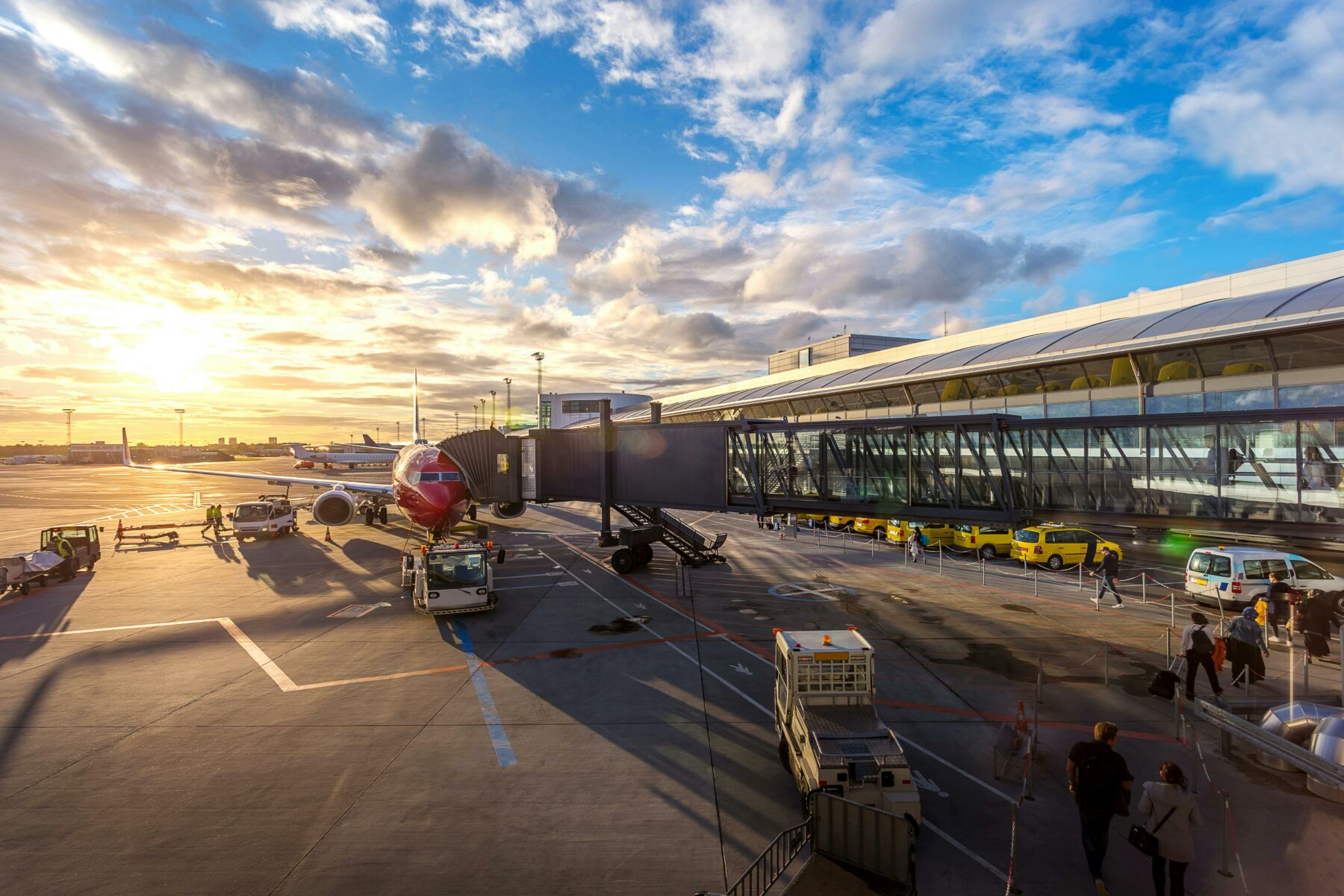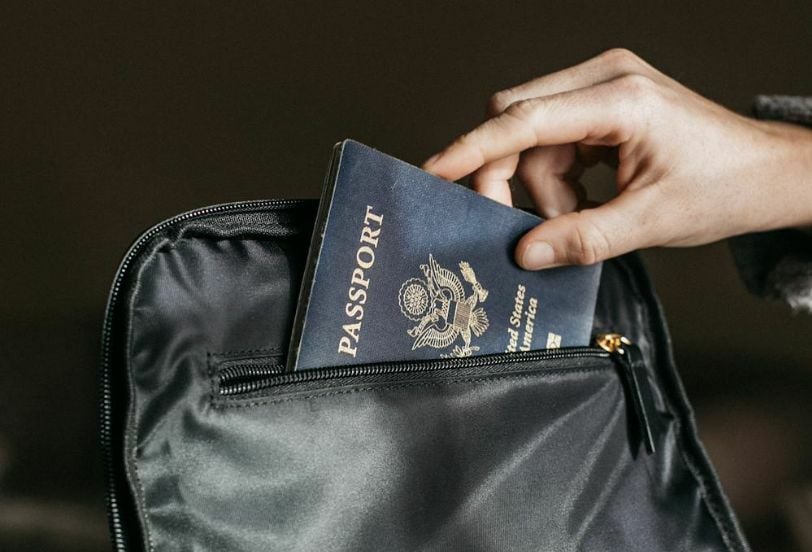What to do if your visa expires while in Thailand

Are you currently organizing a trip to Thailand, or possibly already experiencing it? It is imperative to understand the process of Thailand’s visa regulations. Being aware is crucial, whether you’re visiting for work, education, or simply to join your spouse. Thailand’s Non-Immigrant Visa could be the key to extended stays.
Typically granted for a period of 90 days, the issuance of this visa comes with the prospect of extensions, thereby permitting the enjoyment of Thai hospitality for up to one year, and even further with punctual renewals. However, what if you inadvertently lose count of your visa days or fail to remember the expiration date of your visa? Such incidents of overstaying in Thailand may occur more frequently than one might anticipate.
This is a situation that is ideally averted, however, should one find oneself in such a predicament, understanding the correct course of action becomes paramount. This article intends to delve into the acceptable and prohibited actions, should one find themselves in Thailand with an elapsed visa. The focus is on expeditious and appropriate procedures to ensure the uninterrupted continuation of one’s Thai experience.
Understanding visa overstaying in Thailand
Delve into the concept of visa overstays in Thailand, considering the implications of this circumstance.
Definition of visa overstaying
Visa overstaying signifies remaining in a country beyond the permitted duration identified on your visa. Overstays are common in Thailand, as many foreigners find themselves in this predicament for various reasons. Thai Immigration Control stringently enforces these laws, treating visa overstays as serious offences with significant repercussions, understanding that such situations can, at times, occur unintentionally and be beyond your control.
Legal implications of overstaying
Thai authorities offer you two routes if your visa has expired while you’re still in the country:
-
Voluntarily approach them, admit to your overstay, and pay any necessary fines or penalties.
-
However, if you’re caught overstaying without self-reporting, you may face arrest and prosecution.
The direct cost of overstaying implies daily fines. For each day of overstaying, you’re required to pay a fine of 500 baht, for up to 40 days. The maximum charge is 20,000 Baht for overstays of 40 days or longer.
Besides, longer overstays can even lead to detainment in the Immigration Detention Center (IDC), awaiting repatriation. In these scenarios, you’ll also need to bear the costs of a direct flight back to your home country and a small fee paid to immigration officers to accompany you to the airport.
Always remember the risks involved in overstaying your Visa in Thailand. Awareness of your visa and passport expiry dates, followed by timely action to extend your stay or leave the country, can save you from substantial fines, potential detention, or even re-entry bans into Thailand. Regardless of the reasons, ensuring adherence to the legal entry and exit stipulations of Thai Immigration laws is crucial at all times.
Immediate steps to take if your visa has expired

Upon realizing that your visa has expired in Thailand, immediate actions are vital to prevent potential legal issues. The following steps showcase what you’re required to do if your visa in Thailand has expired.
Evaluating extension possibilities
In some cases, you might have the option of extending your visa. To pursue this avenue, consult with the immigration authorities or a legal expert well-versed in Thai immigration law, who can offer advice based on your specific circumstances. This isn’t a guaranteed option for everyone and largely depends on the immigration office’s discretion and your case.
In the process of evaluating extension possibilities, prepare and furnish necessary documents indicating a legitimate reason for your overstay. Keep in mind that extension possibilities are not an exemption from daily fine accruals, which remain applicable until the issue is resolved.
Despite the stress associated with visa overstay, being proactive and steps providing is a concrete way to begin navigating the situation. Remember, Thai immigration officials understand that overstays can occur unintentionally, and the law provides procedures to address the issue.
Consequences of overstaying your visa
If your visa expires in Thailand, you might face severe consequences. The penalties primarily depend on the length of your overstay and vary from daily fines (previously mentioned) to potential bans on re-entry, or worse, detention.
Risks of detention and deportation

When your visa overstays extend to a prolonged period and you voluntarily report it to Thai authorities, you may be taken to court. The general policy would be to waive the overstay fine and impose a smaller yet significant fine instead. Lengthy overstays, especially when voluntarily reported, can lead to detention at the Immigration Detention Center (IDC). From there, arrangements for a direct flight back to your home country are made at your expense. This process further includes minor fees for immigration officers who escort you from the IDC through immigration and up to your departure gate. It’s worthwhile noting that such an occurrence would also result in a blocklisted stamp on your passport, complicating future travel endeavours.
How to resolve an overstay
When your visa expires in Thailand, it’s important to quickly address the issue. This involves interacting with the Thai Immigration Office, knowing the fines you’ll face, and understanding potential visa extensions. This section provides a guide on surrendering at the airport immigration and dealing with potential arrests and detainments.
Surrendering at airport immigration
Opting for self-reporting is a preferable strategy when your visa expires in Thailand. If you’re overstaying by just a few days and plan to depart via an international airport, it’s usually acceptable to proceed as normal, albeit prepared to settle a small fine of 500 baht per day of overstay. However, keep in mind, that this solution is mainly for first-time or minor overstays. If you have repeatedly or extensively overstayed, it’s advisable to seek consultation with Thai authorities to avoid escalated consequences.
Should the overstay last longer than 90 days, stringent measures apply. Here’s a brief overview:
| Overstay Duration | Ban from Thailand | Overstay Fine (Thai baht) |
|---|---|---|
| Less than 90 Days | – | 500/day (Max 20,000) |
| More than 90 Days | 1 Year | 20,000 |
| More than 1 Year | 3 Years | 20,000 |
| More Than 3 Years | 5 Years | 20,000 |
| More Than 5 Years | 10 Years | 20,000 |
These fines and potential bans emphasise the urgency of settling overstays in Thailand.
Dealing with arrests and detention
In a scenario where you get detained in Thailand due to visa overstay, you’ll face more serious consequences. Detainment can lead to imprisonment and considerable fines. Eventually, you’ll have to leave Thailand on a direct flight back to your home country, escorted by immigration officers right up to the departure gate.
Overstaying longer than a year will likely incur a hefty fine and a ban from re-entering Thailand for up to 10 years. So, it’s crucial to take immediate action at the first sign of an overstay, settling fines, applying for visa extensions, or aligning with Thai immigration laws to avoid these hassles.
Remember, the primary aim is to avoid overstaying at all costs. Nonetheless, if an overstay occurs, resolve it swiftly and responsibly to minimise repercussions. Seek legal advice if required. While the fines are indeed costly, detention and bans are much more inconvenient and impactful to future travels. It’s your responsibility to ensure a legal, respectful stay in Thailand at all times.
Preventive measures and future guidance
In light of the potential consequences of having your visa expire in Thailand, it’s beneficial to know how to avoid such a circumstance and manoeuvre in case of any issues. Visa extensions and professional help can simplify your journey in ensuring adherence to Thai Visa law.
Regular visa extensions and renewals

Don’t get caught flat-footed by visa expirations. In Thailand, you can furnish regular renewals and extensions, before your visa’s expiration date. Do plan your leave days strategically to evade unnecessary overstays. Monitor your stay duration actively, keenly noting visa deadlines. If possible, apply for extensions ahead of time. It’s crucial to understand, each extension adheres to its own stipulated timeframe, whether daily, monthly, or yearly. By keeping an eye on it, you can dodge fines and unpleasant situations linked to overstays.
Legal assistance for visa issues
Embarking on foreign visits might prove complex due to intricate immigration laws. It’s hence advantageous to avail professional legal assistance. Expert agencies offer comprehensive support, from simplifying visa extensions to resolving overstay complications. They provide useful insights and connect you with the necessary authorities, facilitating smoother interactions.
Legal professionals can help you manoeuvre through visa laws, mitigating potential downfalls and guiding you through intricacies in a structured pathway. Thus, legal counsel is a valuable ally in maintaining your legal status in Thailand.
To obtain a Thai visa on arrival as a cruise ship passenger, ensure you have a valid passport, recent photograph, and completed application form. Pay the visa fee at the port of entry and provide proof of onward travel and accommodation details for a seamless entry into Thailand.
Latest Thailand News
Follow The Thaiger on Google News:


























